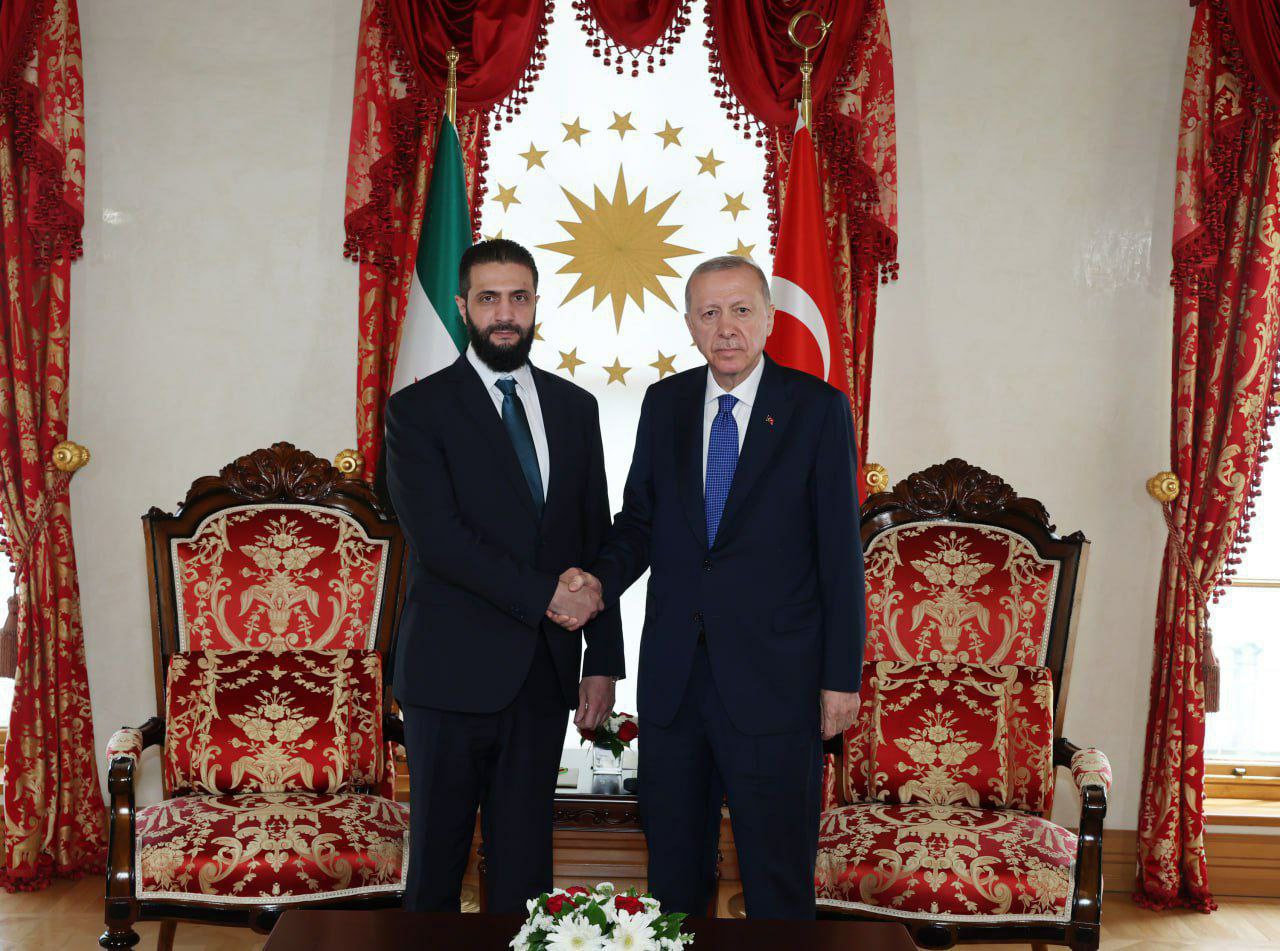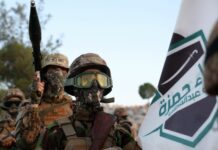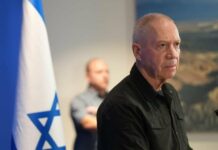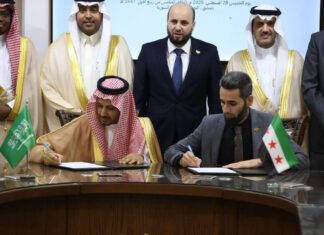
Syrian President Ahmad al-Sharaa met with Turkish President Recep Tayyip Erdogan on Saturday, May 24, at Dolmabahce Palace in Istanbul, in a bid to solidify a new chapter of cooperation between the two nations.
The meeting marks Sharaa’s second visit to Turkey this year, following his appearance at the Antalya Diplomacy Forum in April and his earlier visit to Ankara in February. This time, he was accompanied by a high-ranking delegation, including Syrian Foreign Minister Asaad al-Shaibani and Defense Minister Murhaf Abu Qasra.
Discussions focused on bilateral ties and regional developments, with an emphasis on expanding cooperation in energy, defense, and transportation. According to official statements, both leaders voiced strong interest in turning political momentum into concrete partnerships.
Shared Stance on Regional Issues
During the meeting, President Sharaa expressed appreciation for Erdogan’s efforts to rally international support for the lifting of sanctions on Syria. “We are grateful for Turkey’s principled stance and unwavering diplomatic push to ease the economic pressures on the Syrian people,” he said, according to official Syrian sources.
Erdogan reaffirmed Turkey’s opposition to Israeli actions in Syria, calling the occupation of Syrian territory “unacceptable.” He also reiterated his government’s willingness to strengthen ties across various sectors.
Turkish Foreign Minister Hakan Fidan, Defense Minister Yasar Guler, Intelligence Chief Ibrahim Kalin, and Defense Industries Directorate Chairman Haluk Gürgun attended the talks, underscoring the comprehensive scope of the discussions.
Wider Support for Sanctions Relief
In parallel with the high-level meeting, Turkish officials continued to voice support for recent international moves to lift economic sanctions on Syria. Oncu Kecali, spokesperson for the Turkish Foreign Ministry, said on Sunday that recent decisions by the US and the EU to roll back sanctions were “welcome” and significant for stability efforts.
“These are crucial steps toward supporting Syria’s recovery,” Kecali said. “Turkey will remain committed to measures that promote economic development in Syria, especially through cooperation with countries open to joint efforts.”
His remarks echoed those of Turkish Vice President Cevdet Yilmaz, who had earlier praised the US and EU announcements on the social media platform X, calling them “very positive steps.” President Donald Trump announced the US sanctions rollback during a summit in Riyadh on May 13. The EU followed with its own measures on May 20.
Diplomacy in a Changing Landscape
Sharaa’s continued diplomatic outreach suggests Damascus is eager to reengage with regional and international partners. His presence at the Antalya Diplomacy Forum on April 11, themed “Engaging Diplomacy in a Divided World,” signaled Syria’s intent to reposition itself within broader diplomatic channels.
For Ankara, improving ties with Damascus may offer both economic incentives and strategic leverage as Turkey seeks stability on its southern border. Whether these meetings lead to substantive policy shifts remains to be seen, but Saturday’s summit in Istanbul marked a notable step in a fragile but evolving relationship.








